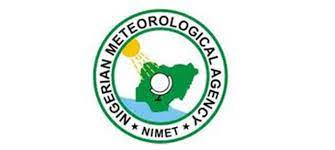
Naira sells 1,485/dollar as official forex market records $23bn
After a flurry of reforms by the Central Bank of Nigeria, forex turnover at the official foreign exchange market increased to $23.29bn within more than six months of trading.
Between January and June, the value of the naira in relation to the US dollar fluctuated between N980 and N1,500.
At the end of trading on Friday, the naira was valued at N1,485 against the US dollar.
According to an analysis of reports and data on daily foreign exchange transactions recorded on the website of FMDQ Securities, a platform that disseminates official foreign exchange trading in the nation, the amount increased by 15%, or $0.6 billion, through the Nigerian Autonomous Foreign Exchange by Deposit Money Banks between January and June 21st.
The principal forex vendors at NAFEM are commercial banks, the CBN, and foreign oil companies.
$4 billion worth of forex transactions were sold in January, according to an analysis. In February, it rose by 46.5%, or $1.86 billion, to $5.14 billion.
However, the amount fell to $4.7 billion in March and $2.5 billion in April. Dollar sales reached $4.60 billion in May, up $2.1 or 84%.
A more detailed analysis of the dollar supply revealed that the forex market saw a $4 billion turnover in January and grew by $3.3 billion in the two weeks that followed the introduction of a new rule that required banks to sell any excess dollar stock they had within 24 hours in order to increase liquidity in the FX market.
The supply steadied in the ensuing weeks, reaching $890.65 million between February 19 and February 23. This inflow grew to $953.02 million during the week of February 26–March 1.
A $4.7 billion deal was sold in March, according to data gathered from the FMDQ Security Exchange, which indicates that market liquidity has improved.
But FX sales fell by 51% month over month to $2.5 billion, which was in line with the naira's observed depreciation in April.
Nigeria's currency depreciated at the end of May, even with a $4.60 billion increase in dollar supply in the official foreign exchange market.
In June, trading activities resulted in $2.29 billion worth of forex trading between willing buyers and sellers over the course of 12 days.
The CBN is currently implementing a number of policies that have been linked to liquidity in the forex market.
A Price Verification System has been implemented, banks' Net Open Position has been limited, the daily cap of N2 billion on remunerable Standing Deposit Facility has been removed, the exchange rate windows have been unified, the FX market has been liberalised, banks and airlines have had their FX backlog obligations cleared, and the Bureau De Change segment has been reorganised.
The total value of all foreign exchange transactions that are completed within a given timeframe is represented by forex turnover, which is an important financial metric that sheds light on the liquidity and activity of the forex market.
High turnover rates suggest that a market is very dynamic, with many players participating in buying and selling currencies, which can signal investor confidence and economic stability.
On the official end of the market, the apex bank started by addressing suspected cases of excessive foreign currency speculation and hoarding from Nigerian banks.
The apex bank also announced the complete clearance of the valid foreign exchange backlog. They stated that they concluded the payment of $1.5bn to settle obligations to bank customers, effectively settling the residual balance of the FX backlog.
Nigeria’s currency, the naira, has shown relative stability over the past month, trading between N1,476 and N1,485 against the dollar in the official foreign exchange market, but sustainability remains a concern.
The naira stability has been attributed to low demand and increased dollar inflows, which have helped to strengthen the external reserves.
Nigeria’s external reserves have increased by 2.81 per cent month-on-month to $33.640 billion as of June 20, 2024, compared to $32.720 billion recorded on May 20, 2024, according to data from the Central Bank of Nigeria.
Governor of the Central Bank of Nigeria, Olayemi Cardoso, had at various fora emphasised the critical need to attract inflows to maintain liquidity in the foreign exchange market and stabilise the exchange rate.
He emphasised the importance of managing exchange rates to address inflationary pressures and ensure both price stability and sustained long-term economic growth.
“Failure to tame inflationary pressure using the exchange rate channel may jeopardize not only price stability but also long-term growth.”
Meanwhile, the naira ended the trading week at N1,485.53 per dollar, unchanged from Thursday’s closing of N1,485.36. Earlier in the week, the dollar rates were as follows: N1,476.12 on June 3, N1,476.95 on June 4, N1,488.60 on June 5, N1,481.49 on June 6, and N1,483.99 on June 7, data from the FMDQ Securities Exchange Limited showed.
According to FMDQ Exchange, a platform that oversees the official FX trading in Nigeria, the dollar exchanged for as high as N1,505 and as low as N1,401, during trading hours.
The daily FX market turnover stood at $193.50 million. The Nigerian naira exhibited stability in the official market, aligning with Fitch Ratings’ projections, to end the year at N1,450 per dollar.





